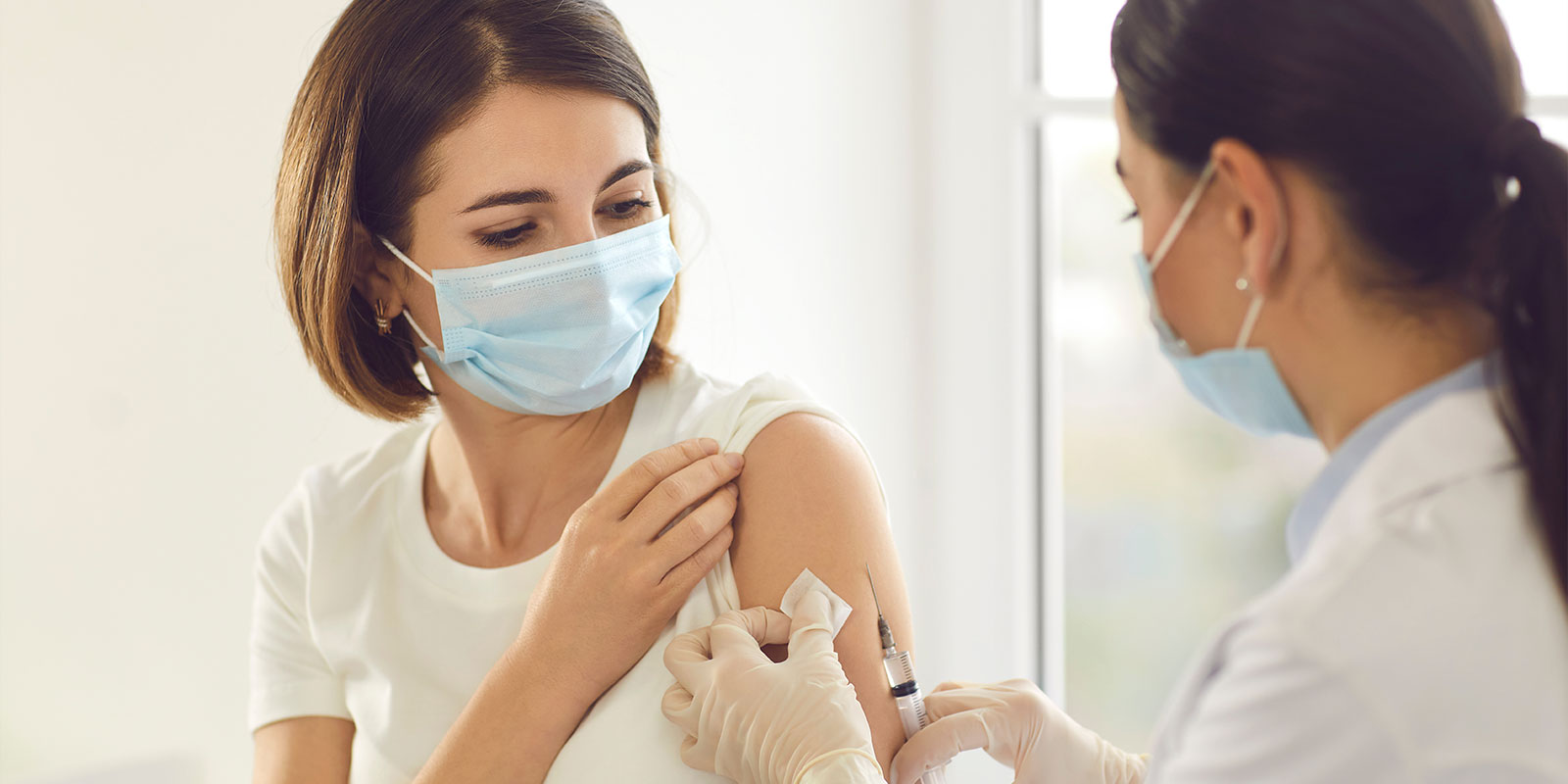Home>Misc>Featured>Which Activity Is Included In Preventative Health Care?


Featured
Which Activity Is Included In Preventative Health Care?
Modified: January 2, 2024
"Discover the featured activity included in preventative health care! Take proactive steps towards improving your well-being and maintaining a healthy lifestyle."
Introduction
Preventative health care plays a crucial role in maintaining overall well-being and preventing the onset of various diseases. It involves a range of activities and interventions aimed at identifying and mitigating health risks before they become serious health issues. By focusing on proactive measures, preventive health care can help individuals live healthier, longer lives.
In today’s fast-paced world, it is essential to prioritize preventive health care to counteract the adverse effects of sedentary lifestyles, poor nutrition, and environmental factors. While seeking medical care when one is ill is important, preventing illness and promoting good health is equally, if not more, important.
In this article, we will explore various activities that are included in preventative health care. From routine physical examinations to lifestyle modifications, each of these activities plays a vital role in promoting health and well-being.
By making preventive health care a regular part of our lives, we can take control of our health and significantly reduce the risk of developing chronic diseases and complications. Let’s delve into the key activities that contribute to preventive health care.
Physical Examinations
Physical examinations are a fundamental component of preventive health care. They involve a comprehensive assessment of an individual’s overall health, including vital signs, body systems, and medical history. Regular physical examinations help detect potential health issues early on, allowing for timely intervention and treatment.
During a physical examination, healthcare providers conduct various assessments, such as measuring blood pressure, heart rate, and temperature. They also examine the head, ears, eyes, nose, throat, skin, and other parts of the body for any abnormalities or signs of disease.
In addition to the physical assessments, lab tests may be recommended to check cholesterol levels, blood glucose, and other indicators of organ function. These tests can help identify risk factors for conditions such as diabetes, high blood pressure, or heart disease.
Physical examinations also provide an opportunity for individuals to discuss any concerns or symptoms they may be experiencing with their healthcare provider. This open communication allows for early detection and treatment of potential health problems.
The frequency of physical examinations may vary depending on age, gender, and overall health. Generally, it is recommended to have a regular check-up at least once a year for adults. Children and adolescents may need more frequent examinations to monitor growth and development.
By undergoing regular physical examinations, individuals can stay proactive about their health. Detecting and treating health issues in their early stages can lead to better outcomes and improve overall well-being.
Vaccinations
Vaccinations are a critical aspect of preventive health care as they help protect individuals from infectious diseases. Vaccines stimulate the body’s immune system to produce antibodies and develop immunity to specific diseases, preventing infections and their potentially severe consequences.
Immunizations are available for a wide range of diseases, including measles, mumps, rubella, polio, hepatitis, influenza, and many more. They are administered through injections or oral doses, depending on the vaccine.
Getting vaccinated not only protects individuals from diseases but also plays a crucial role in reducing the spread of contagious illnesses within the community. Through a process called herd immunity, a significant portion of the population becomes immune to a particular disease, making it more challenging for the disease to spread.
The recommended vaccination schedule varies depending on age, health conditions, occupation, and travel plans. For children, a series of vaccines are typically administered starting from birth and continuing through adolescence. Adults may also need booster shots or vaccinations for specific diseases based on their individual circumstances.
It is important to consult with healthcare professionals to receive accurate information about vaccinations and determine the appropriate immunizations for each individual. They can provide guidance on vaccine schedules and address any concerns or questions an individual may have.
Vaccinations have significantly reduced the prevalence and impact of many devastating diseases throughout history. They are a safe, effective, and essential tool in preventive health care.
By staying up to date with recommended vaccines, individuals can protect themselves and contribute to the overall health and well-being of their communities.
Screenings
Screenings are another integral part of preventive health care, allowing for the early detection of diseases and conditions when they are most treatable. These screenings involve various tests and examinations to identify potential health problems before symptoms manifest.
Common screenings include mammograms, Pap smears, colonoscopies, blood tests, and imaging studies like X-rays or ultrasounds. These screenings are tailored to specific age groups, genders, and risk factors.
For example, mammograms are recommended for women to screen for breast cancer, while Pap smears are used to detect early signs of cervical cancer. Colonoscopies are performed to check for colorectal cancer, and blood tests can detect conditions like high cholesterol or diabetes.
Regular screenings can help catch abnormalities or signs of disease in their early stages. This early detection allows for prompt treatment and can significantly improve outcomes. It is important to follow the recommended screening guidelines provided by healthcare professionals.
In addition to disease-specific screenings, general health screenings may also be conducted to assess overall wellness. These screenings may include measurements of blood pressure, cholesterol levels, and body mass index (BMI).
Screenings provide individuals with valuable information about their health status and allow healthcare professionals to provide necessary interventions or recommendations. They empower individuals to take control of their health and make informed decisions about their well-being.
Remember, regular participation in appropriate screenings is key to maintaining optimal health and preventing the progression of potentially serious conditions.
Counseling and Education
In preventive health care, counseling and education play a crucial role in empowering individuals to make informed decisions about their health. Through counseling sessions and educational programs, healthcare professionals can provide guidance and support to individuals, equipping them with the knowledge and tools to lead healthier lives.
Counseling sessions may involve discussions on various topics, such as smoking cessation, weight management, stress reduction, and healthy lifestyle choices. These sessions provide individuals with personalized advice and strategies to address specific health concerns or risk factors.
Education, on the other hand, focuses on providing individuals with general information about preventive health care and promoting health literacy. This may include workshops, seminars, and community programs that cover topics like nutrition, exercise, mental health, and disease prevention.
By offering counseling and education, healthcare professionals can help individuals understand the importance of preventive measures and motivate them to make positive changes in their lives. These interventions can lead to healthier habits, reduced risk factors for disease, and improved overall well-being.
In addition to individual counseling, healthcare providers may also offer group sessions or support groups to facilitate peer-to-peer learning and create a sense of community among individuals with similar health concerns. This allows for shared experiences, support, and the exchange of knowledge and resources.
It is important for individuals to actively participate in counseling and educational opportunities, ask questions, and seek clarification on any health-related matters. By being proactive and receptive to information, individuals can take ownership of their health and make well-informed choices for themselves and their families.
Counseling and education are powerful tools in preventive health care, enabling individuals to make positive changes and live healthier, more fulfilling lives.
Preventive Medications
Preventive medications are an important component of preventive health care for individuals at high risk of developing certain conditions. These medications are prescribed to reduce the risk of developing a specific disease or to manage existing conditions and prevent their progression.
One common example of preventive medications is the use of statins to lower cholesterol levels and reduce the risk of cardiovascular disease. Another example is the use of blood pressure medications to manage hypertension and prevent complications such as heart attack or stroke.
Preventive medications are also commonly prescribed to individuals with a family history of certain diseases, such as breast cancer or osteoporosis. In these cases, medications may be used to help reduce the risk or delay the onset of these conditions.
It is important to note that the decision to use preventive medications should be made in consultation with healthcare professionals. They will evaluate an individual’s risk factors, medical history, and overall health to determine the appropriate medications and dosage.
Compliance with prescribed medications and regular follow-up with healthcare providers are essential aspects of preventive medication use. This ensures that the medications are effective and their benefits are maximized.
It is important to remember that preventive medications are just one aspect of preventive health care. They often work in conjunction with other preventive measures such as lifestyle modifications, screenings, and vaccinations to achieve optimal health outcomes.
While taking preventive medications can significantly reduce the risk of developing certain conditions, it is important to continue monitoring overall health and follow the guidance of healthcare professionals.
By incorporating preventive medications into a comprehensive preventive health care plan, individuals can take proactive steps towards maintaining their health and reducing the risk of developing certain diseases.
Lifestyle Modifications
Lifestyle modifications are key to preventive health care and involve making positive changes to daily habits and behaviors. These modifications can significantly reduce the risk of developing chronic diseases and improve overall well-being. By embracing a healthy lifestyle, individuals can enhance their quality of life and increase their longevity.
One of the most important lifestyle modifications is adopting a nutritious diet. Consuming a balanced diet rich in fruits, vegetables, whole grains, lean proteins, and healthy fats provides essential nutrients and helps maintain a healthy weight. Avoiding processed foods, excessive sugar, and unhealthy fats can reduce the risk of obesity, diabetes, cardiovascular disease, and certain cancers.
Regular physical activity is also crucial for preventive health care. Engaging in moderate-intensity activities such as brisk walking, swimming, or cycling for at least 150 minutes per week can help manage weight, strengthen the cardiovascular system, improve mental health, and reduce the risk of numerous chronic conditions.
Adequate sleep is often underestimated but plays a vital role in overall health. Quality sleep supports immune function, mental health, and optimal cognitive function. Establishing a regular sleep routine, creating a conducive sleep environment, and prioritizing relaxation techniques can promote restful sleep and improve overall well-being.
Stress management is another important aspect of preventive health care. Chronic stress can lead to various health issues, including high blood pressure, heart disease, and mental health disorders. Engaging in stress-reducing activities such as mindfulness, meditation, yoga, and hobbies can improve overall mental and physical health.
Eliminating harmful habits such as smoking and excessive alcohol consumption is critical in preventive health care. Smoking is the leading cause of preventable diseases, including lung cancer, heart disease, and respiratory issues. Excessive alcohol consumption can lead to liver disease, heart problems, and addiction. Quitting smoking and limiting alcohol intake can significantly reduce the risk of these conditions.
Social connections and a strong support system are essential for overall well-being. Engaging in meaningful relationships, participating in community activities, and maintaining a positive social network can improve mental health and provide a sense of belonging and support.
By embracing lifestyle modifications and making healthy choices, individuals can significantly reduce their risk of developing chronic diseases. These modifications work synergistically with other aspects of preventive health care to promote optimal health and well-being.
Chronic Disease Management
Chronic diseases such as diabetes, hypertension, arthritis, and asthma require long-term management and care. While preventive health care focuses on the prevention of these conditions, it also encompasses the management of existing chronic diseases.
Effective chronic disease management involves regular medical check-ups, adherence to prescribed medications, and lifestyle modifications to minimize symptoms, prevent complications, and improve overall quality of life.
Regular medical check-ups play a crucial role in monitoring the progression of chronic diseases and adjusting treatment plans accordingly. These check-ups often include assessments of vital signs, lab tests, and discussions with healthcare providers to address any concerns or changes in symptoms.
Adherence to prescribed medications is vital in managing chronic diseases. Following the prescribed dosage and schedule as well as discussing any side effects or concerns with healthcare professionals are essential for maximizing the benefits of these medications.
Lifestyle modifications also play a significant role in managing chronic diseases. For example, individuals with diabetes may need to adopt dietary changes, engage in regular physical activity, and monitor blood sugar levels. Those with hypertension may be advised to reduce sodium intake, engage in regular exercise, and manage stress levels.
Education and support are critical aspects of chronic disease management. Learning about the condition, its management, and potential complications can empower individuals to take an active role in their care. Support groups or counseling sessions can also provide emotional support and a platform for sharing experiences and strategies for managing the challenges associated with chronic diseases.
Collaboration between healthcare providers, patients, and caregivers is vital in developing personalized care plans. By working together, individuals can gain a better understanding of their condition, effectively manage symptoms, and reduce the risk of complications.
It is important to note that chronic disease management is an ongoing process. Regular follow-up appointments, adjustments in medications, and modifications in lifestyle practices may be necessary as the condition progresses or in response to changes in health status.
Through effective chronic disease management, individuals can improve their quality of life, minimize the impact of their conditions, and reduce the risk of complications. By staying proactive and engaged in their care, individuals can maximize their overall health and well-being.
Conclusion
Preventative health care is essential for maintaining good health and preventing the onset of various diseases. By engaging in a range of activities such as physical examinations, vaccinations, screenings, counseling and education, preventive medications, lifestyle modifications, and chronic disease management, individuals can take proactive steps towards achieving optimal health and well-being.
Physical examinations allow for early detection of health issues, while vaccinations protect against infectious diseases and promote community immunity. Screenings help identify potential health problems before symptoms arise, and counseling and education empower individuals to make informed decisions about their health.
Preventive medications can reduce the risk of developing certain conditions, while lifestyle modifications, such as diet, exercise, sleep, stress management, and eliminating harmful habits, promote healthy living. Chronic disease management is crucial for effectively managing ongoing health conditions and improving overall quality of life.
By incorporating these activities into our lives, we can not only prevent the onset of diseases but also promote long-term health and well-being. Embracing preventative health care requires active participation and collaboration between individuals, healthcare professionals, and support networks.
Remember, preventive health care is an ongoing commitment. Regular check-ups, adherence to medications, and consistent lifestyle modifications are necessary to ensure optimal results. By prioritizing preventive health care, individuals can enjoy a healthier, happier life and minimize the burden of preventable diseases.
Let us take charge of our health and embrace the power of preventive care to live our lives to the fullest.









